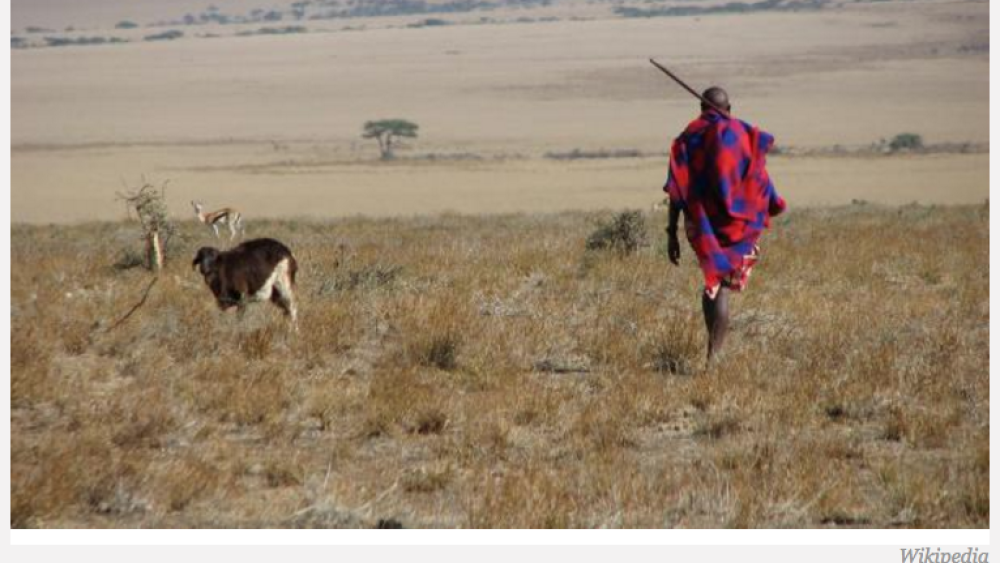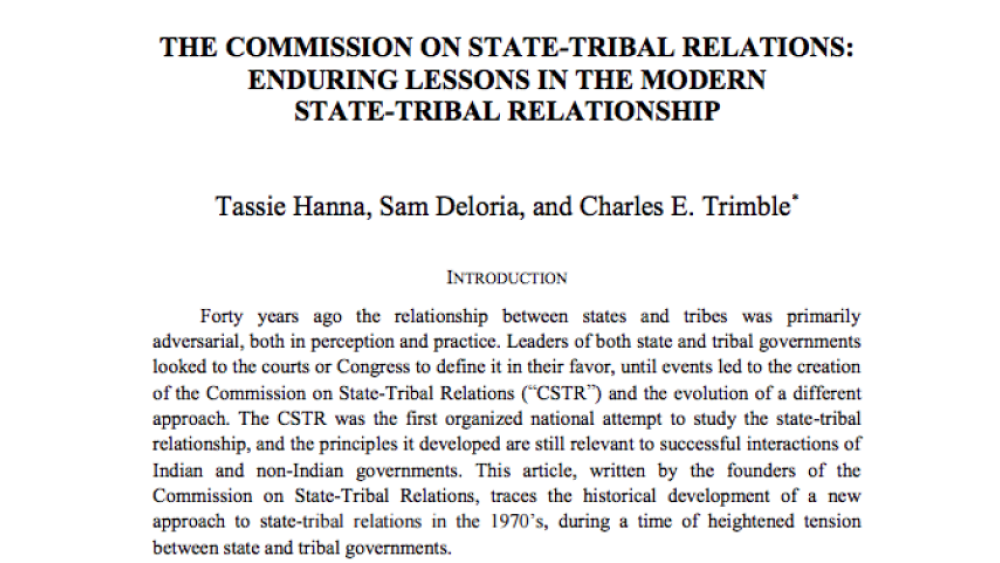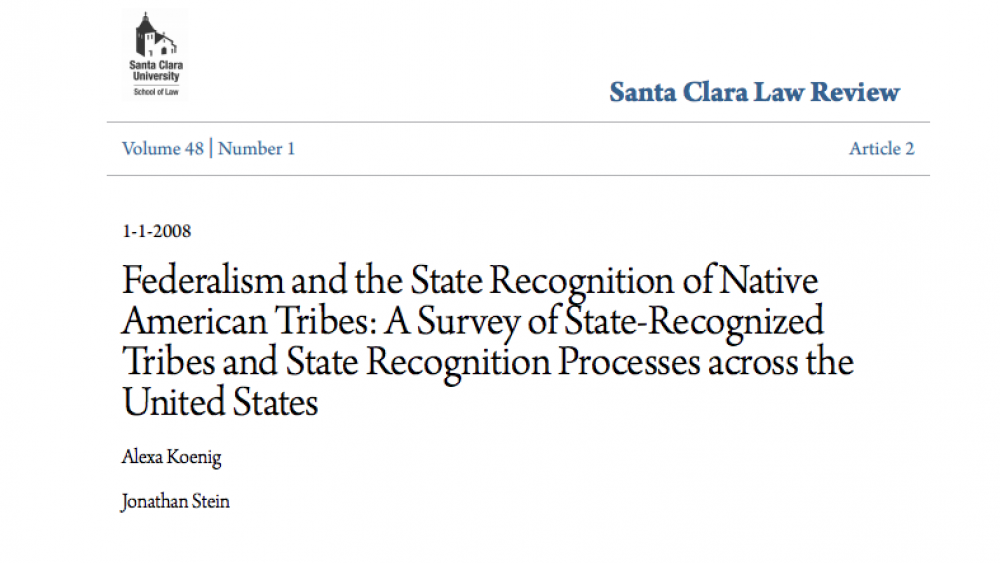This summer, in the face of an impending private land sale of Pe’Sla, a Lakota/Dakota/Nakota Indian sacred site in the Black Hills, the United Nations Special Rapporteur on the Rights of Indigenous Peoples, S. James Anaya, directed that authorities in South Dakota “engage in a process of consultation” with the Great Sioux Nation to consider and address their views and concerns. While the federal Indian consultation right is now entrenched in federal and international law, the Special Rapporteur’s pronouncement of a state-tribal consultation mandate is profound–especially insofar as it concerns the American indigenous “right to continue to maintain their traditional cultural and ceremonial practices” on off-reservation lands...
Additional Information
Galanda, Gabriel S. "Advancing the State-Tribal Consultation Mandate." Indian Country Today, October 17, 2012. Article. (https://ictnews.org/archive/advancing-the-state-tribal-consultation-mandate, accessed February 28, 2023)




